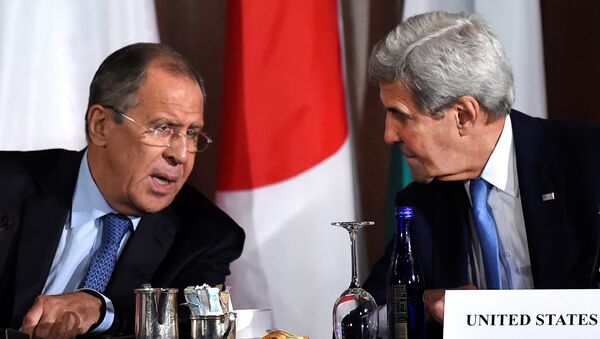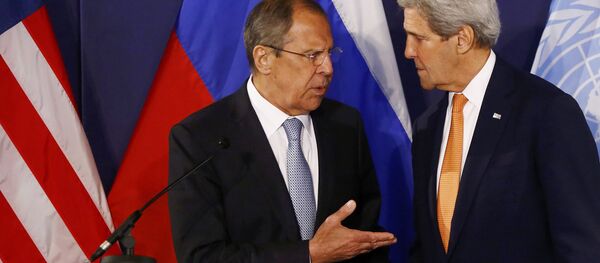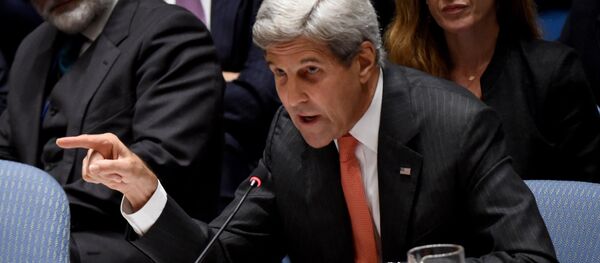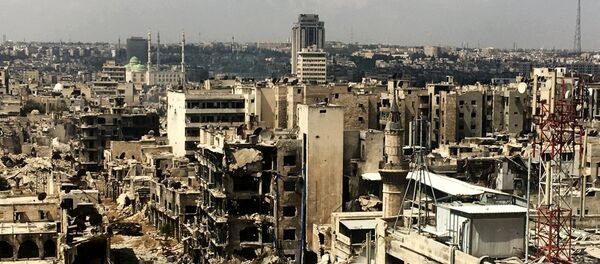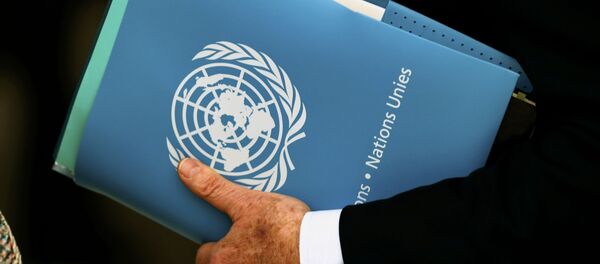Following the second meeting of the International Syria Support Group (ISSG) on the sidelines of the UN General Assembly on Thursday, Sergei Lavrov noted that its major outcome is that the sides have agreed to continue working on ceasefire in Syria.
Russia's top diplomat however noted that the armed opposition must reciprocate Syrian government peace efforts and not let terrorists benefit from the stalled ceasefire.
"Some of our partners made attempts to force the Syrian government to undertake unilateral steps. We insist, and are being supported in this, that the opposition should make reciprocate steps," Sergei Lavrov told journalists after the meeting.
"They should do it to prevent ISIS (Daesh) and Al-Nusra to exploit lack of ceasefire in Syria. I think we have such common understanding but the details are still needed to be worked out," he added.
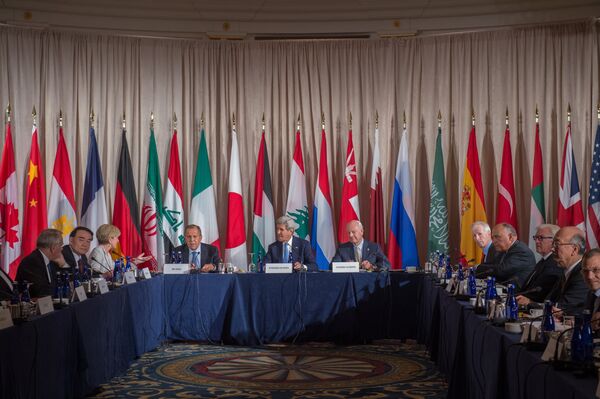
Meanwhile, the US Secretary of State also made a statement after the meeting where he claimed that he and his team "have exchanged ideas with the Russians and plan to consult on Friday with respect to those ideas."
The Washington's foreign policy on Syria seems to look like "if the Russians come back to us with constructive proposals, we will listen."
"If Russia demonstrates that it is serious, we will work with the opposition to reciprocate and to pull back from this cycle of escalation, because the opposition also has a responsibility to observe the cessation of hostilities if the government does and to disassociate from al-Nusra."
In his statement however John Kerry attempted once again to push for what amounts to a 'no-fly zone' — the grounding of all Russian and Syrian aircraft.
"The only way to achieve that [cessation of hostilities and violence] is if the ones who have the air power in this part of the conflict simply stop using it – not for one day or two, but for as long as possible so that everyone can see that they are serious."
He referred to Kerry's words that “we all agree that ISIS (Daesh) and Al-Qaeda are our common enemy.”
"How does grounding the Syrian Air Force and Russian Air Force…defeat ISIS, defeat Al-Qaeda? It doesn’t. In effect, they would be the beneficiaries of these policies," Jatras said in his interview with RT.
The former diplomat also commented on the recent attack of the humanitarian convoy in Syria.
"This is the kind of thing we’ve seen so many times before, not only in Syria but in Bosnia, in Kosovo, Libya and other places," he told RT.
"Something happens and within minutes Western officials are saying “this is who is at fault, here is what happened, and here is the blame for it.”
And then only afterwards, "after all the headlines have gone around the world about responsibility, do we hear any argument about what the details are, what might or might have not happened. And those will be on page 19 somewhere," he added.
"Let’s be clear: Right now, the Obama administration has one priority and that is to stop eastern Aleppo from falling to Syrian government forces," he said.
Strategically, he explained, if the jihad terrorists lose eastern Aleppo, this war is over. The fighting may go on for a while, but that will be "the tipping point in terms of who is going to win. "
"They can dance around any way they want, but the bottom line is always going to be to try and stop the Syrian and Russian forces from decimating these jihadists and changing the outcome," he stated.
With regards to the Friday meeting of Russia's and US top diplomats, Jatras noted that while Lavrov and Kerry "may seem to agree on various details, in terms of where the two countries want to go in Syria they are poles apart."
"The bottom line for the Obama administration is regime change, which means a jihadist victory in Syria, and that is the rabbit they are constantly trying to pull out of the hat," he said.
While the results of the meeting are still remain to be seen, political analyst Elena Suponina also suggested that it will be hard to avoid new incidents as the two countries "hold talks on the minefield. And this field is called Syria."

